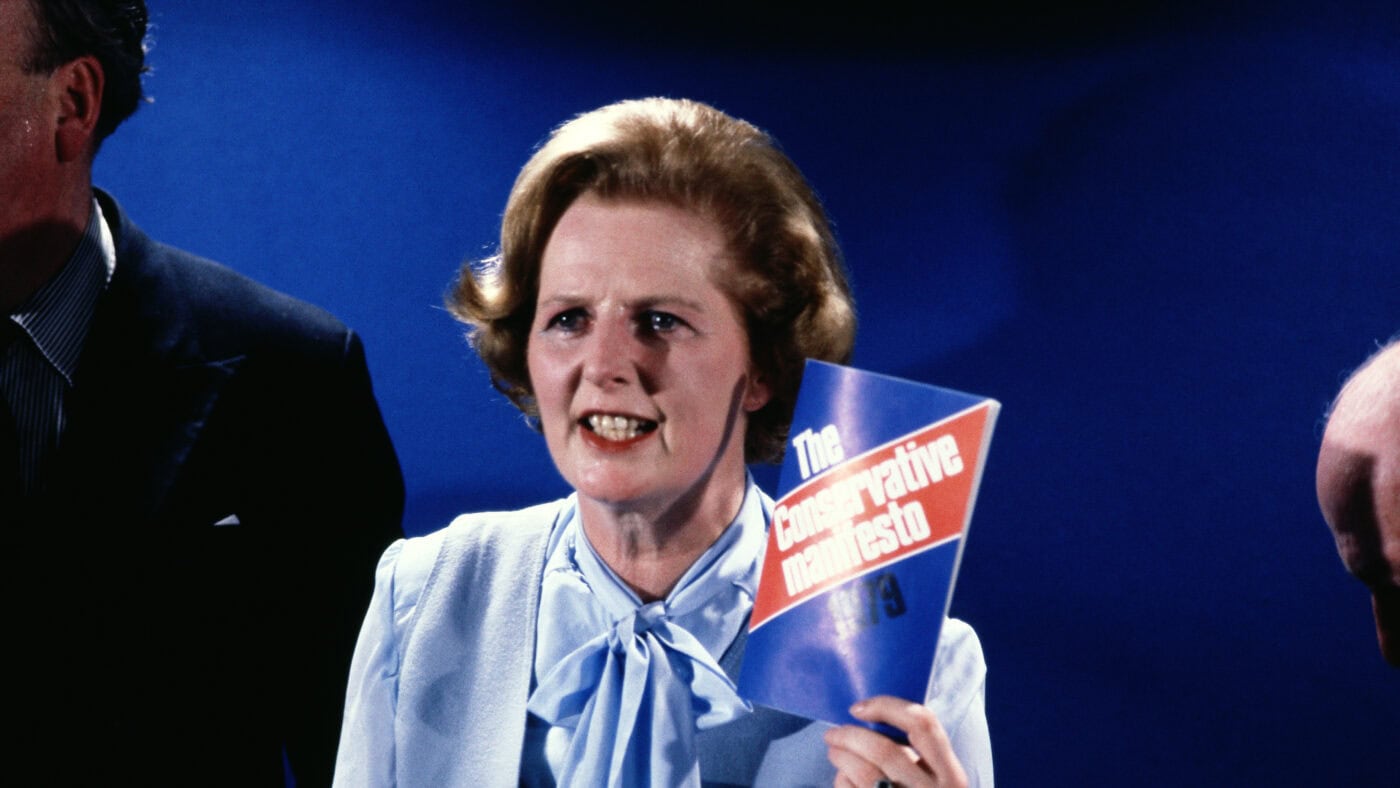Since the Conservative Party’s seismic defeat in July, the Party has turned itself inside out trying to wrangle with the result. A leadership campaign and short-sighted media discussion on whether the Tories had moved too far to the Right to be electorally successful ensued. But this was all viewed through the prism of New Labour and Tony Blair’s route to power over a quarter of century ago.
The debate revolved around the notion of a ‘centre ground’ as the only position from which parties can claim electoral victory. But a new report by James Frayne for the Centre for Policy Studies shows that the Right-Left paradigm actually plays no role in the thinking of British voters. In fact, according to polling from Public First, it was the least likely reason for people not voting Conservative this time round.
Go back three decades and Margaret Thatcher had already made clear how the Conservative Party could battle Labour’s centrist shift. Echoing Keith Joseph, ‘It is not the centre ground’, she said, ‘but the common ground – the shared instincts and traditions of the British people – on which we should pitch our tents. That ground is solid, whereas the centre ground is as slippery as the spin doctors who have colonised it.’
Rather than meeting Keir Starmer on his ‘centre ground’ turf, the Tories must find their own route back to power by returning to the common ground.
But what is the difference between the two? The centre ground is often considered to be the moderate approach, a bridge between Right and Left, but which may undermine core principles. It is, in other words, the midpoint between two groups of politicians.
The common ground, on the other hand, is about understanding the concerns and values of ordinary people. Designing policy that resonates with working and middle-class families whilst also staying true to the values of liberal conservatism. It is less a link between Right and Left and more a link between conservatism and the British people.
It is here that the CPS report argues Conservative politicians should rally and mount their counter-offensive. Ignore the Westminster bubble and the Left-Right labels, and instead focus on ordinary people and the solutions they need to the problems they face on a daily basis.
While some Conservatives have dug deep into a battle on woke ideology, many voters have no idea what woke is, never mind making it a priority, especially in comparison to the cost of living, the NHS or immigration. It was on these issues that voters lost faith in the Conservative Party and deserted them. 52% of Conservative 2019 voters thought reducing NHS waiting lists should be a priority for the government vs 56% as a national average. While 39% wanted to reduce small boat arrivals vs a national average of 26%. Voters needed results and instead they got a crumbling NHS, a lack of GP appointments and an explosion of migration – the opposite of what had been promised.
But there is still a glimmer of hope for the Party. The research found that only 18% of 2019 Tory voters said they would never vote for them again. In fact, 52% of the electorate were theoretically open to voting Conservative at the next election. So while voters are acutely aware that they’ve been burned by the Tory failure before, they’re not so alienated that they wouldn’t vote Conservative again, so long as the Tories can get their act together and show a credible plan to deal with their most pressing concerns.
It’s also clear from the research carried out in the Don Valley and Guilford that the Conservative Party must actively start making the case for conservatism again. The core values of a smaller state and lower taxes are met with trepidation by voters who worry that this will mean less money for the NHS.
It is the Party’s job then to whip itself into shape and become electorally viable again by taking charge of the common ground. It is the role of the Centre for Policy Studies and likeminded individuals and organisations to fertilise the soil and build the framework on which the centre-right can rebuild. Exploring conservative ideas and solutions and selling the principles of a smaller state and lower taxes to the British people.
That’s why the CPS is hosting the 2025 Margaret Thatcher Conference on remaking conservatism, to bring together likeminded people to discuss the solutions to the problems the country faces. If you’d like to join us, you can sign up for pre-sale tickets here.
We will help build the foundations, but it will be up to the Conservative Party to show itself not just to be an alternative to the Labour government, but to also be an alternative to the Conservative governments of the last decade that too often failed to deliver on their promises and left ordinary people feeling unheard.
Click here to subscribe to our daily briefing – the best pieces from CapX and across the web.
CapX depends on the generosity of its readers. If you value what we do, please consider making a donation.


